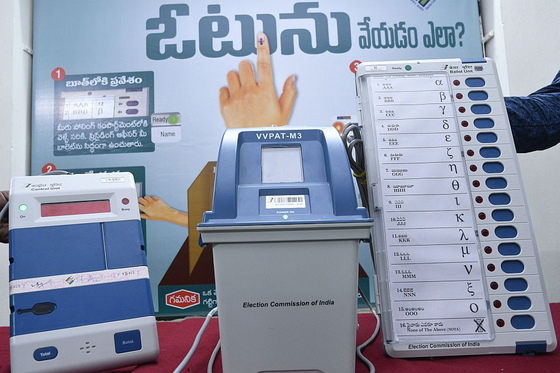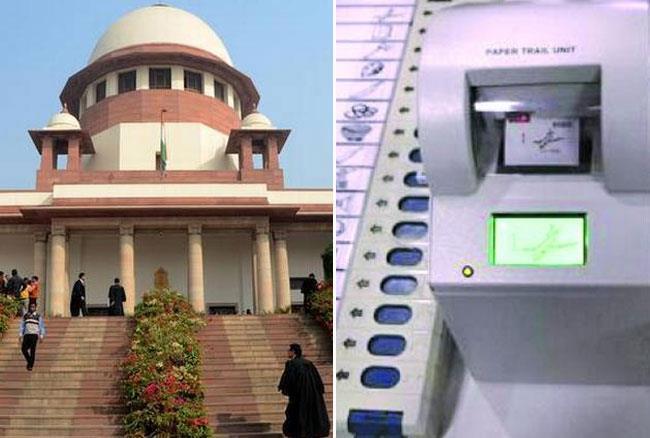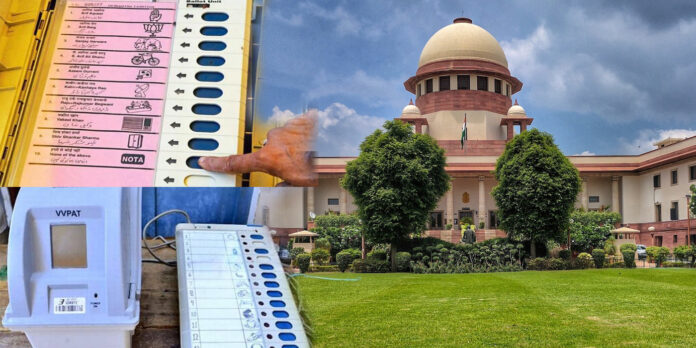Ahead of the 2024 Lok Sabha elections, the Election Commission of India (ECI) has staunchly defended electronic voting machines (EVM) as ‘non-tamperable’, both owing to technological measures and strict administrative and security procedures designed by the commission. In a recent affidavit filed in the Supreme Court, the commission has stated –
“The electronic voting machines are non-tamperable, both due to technological measures, and also due to strict administrative and security procedures laid out by ECI, whereby no access to EVM/VVPAT is allowed to any unauthorised person. Hence, these are protected from any tampering or manipulation whether before the polls, or during the polls, or after the polls, in storage or transportation from manufacturer to the state or district or vice versa, or when transported from one state to another.”
Key points:
- Prepare to be paying up to $7 a cup by the end of the year
- Shipping costs and natural disasters in coffee regions are being blamed for the price increase
- Australians consume one billion cups of coffee annually, but cafe owners say an increase in price won’t change that
It’s nearly five times the container prices of two years ago due to global shortages of containers and ships to be able to take things around the world.

The election commission has opposed a plea seeking complete verification of EVM data against voter-verifiable paper audit trail (VVPAT) records, saying that it was yet another attempt to cast doubt over the functioning of EVMs and VVPATs on ‘vague and baseless’ grounds. Their recent affidavit was filed in response to a public interest litigation (PIL) petition filed by the non-governmental organisation Association for Democratic Reforms, which is currently being heard by a bench headed by Justice Sanjiv Khanna.
In their reply, the election commission has argued that counting all VVPAT paper slips manually, as suggested, would not only be labour and time-intensive, but also be prone to ‘human error’ and ‘mischief’. This would essentially be a retrogression to the paper ballot system, the commission has alleged –
But roaster Raoul Hauri said it hadn’t made a dent in sales, with more than 300 customers still coming through the doors for their daily fix. “No one really batted an eyelid,” he said. “We thought we would get more pushback, but I think at the moment people understand.
“Manual counting of this scale will also be prone to human error and mischief, leaving aside the drudgery of days of counting small slips of paper potent with possibilities of mischievous false narratives on social media, round after round of counting across the country…The petition is essentially suggesting going back to paper ballot system.”
Paving the way for Australian producers
Besides praying for a more robust system of cross-verification between EVM and VVPAT tallies, the petitioner has also asked for a declaration by the court that every voter has the fundamental right to verify that their vote has been ‘recorded as cast’ and ‘counted as recorded’, praying for directions to affect appropriate changes to enforce this ‘fundamental right’. No such fundamental right exists, the election commission has categorically said in its affidavit. The poll panel has also disputed the petitioner’s claim that its recent plea sought to give full effect to the purport and object of the 2013 judgement in Subramanian Swamy v. Election Commission of India, in which the Supreme Court held ‘paper trail’ to be an indispensable requirement of free and fair elections and directed the ECI to introduce the VVPAT mechanism –
The election commission has revealed that ballot slips of 38,156 randomly selected VVPATs have been tallied till date with the electronic counts of their control unit (CU), asserting that not a single case of transfer of vote meant for one candidate to another has been detected. “Differences in count, if any, have always been traceable to non-deletion of mock poll votes from the CU or non-removal of mock poll slips from the VVPAT,” the affidavit states. It further adds –
Last month, the Justice Khanna-led bench voiced its reservations about the non-profit’s plea. Justice Khanna asked Advocate Prashant Bhushan whether the petitioner-association was being overly suspicious. Despite encountering scepticism from the bench, the counsel pressed for more extensive cross-verification of electronic voting machines (EVM) data against voter-verifiable paper audit trail (VVPAT) records, highlighting that only around two percent of EVMs were currently cross-verified. In response to this, Justice Khanna pointed out practical limitations faced by the election commission. Ultimately, the court declined to issue notice at that stage but instructed the counsel to serve a copy of the petition to the standing counsel of the Election Commission of India, before adjourning the hearing.

She said the industry could eventually emulate the gin industry, with boutique operations cropping up across the country.
“I think the demand for Australian coffee at the moment is an ever-changing landscape and more and more Aussies are starting to question where their food comes from, who is growing it”
“What you will get is all these kinds of niche coffee plantations who develop a very unique flavour profile and then market in funky packaging and appeal to certain markets,” she said.
Case Details
Association of Democratic Reforms v. Election Commission of India & Anr. | Writ Petition (Civil) No. 434 of 2023



